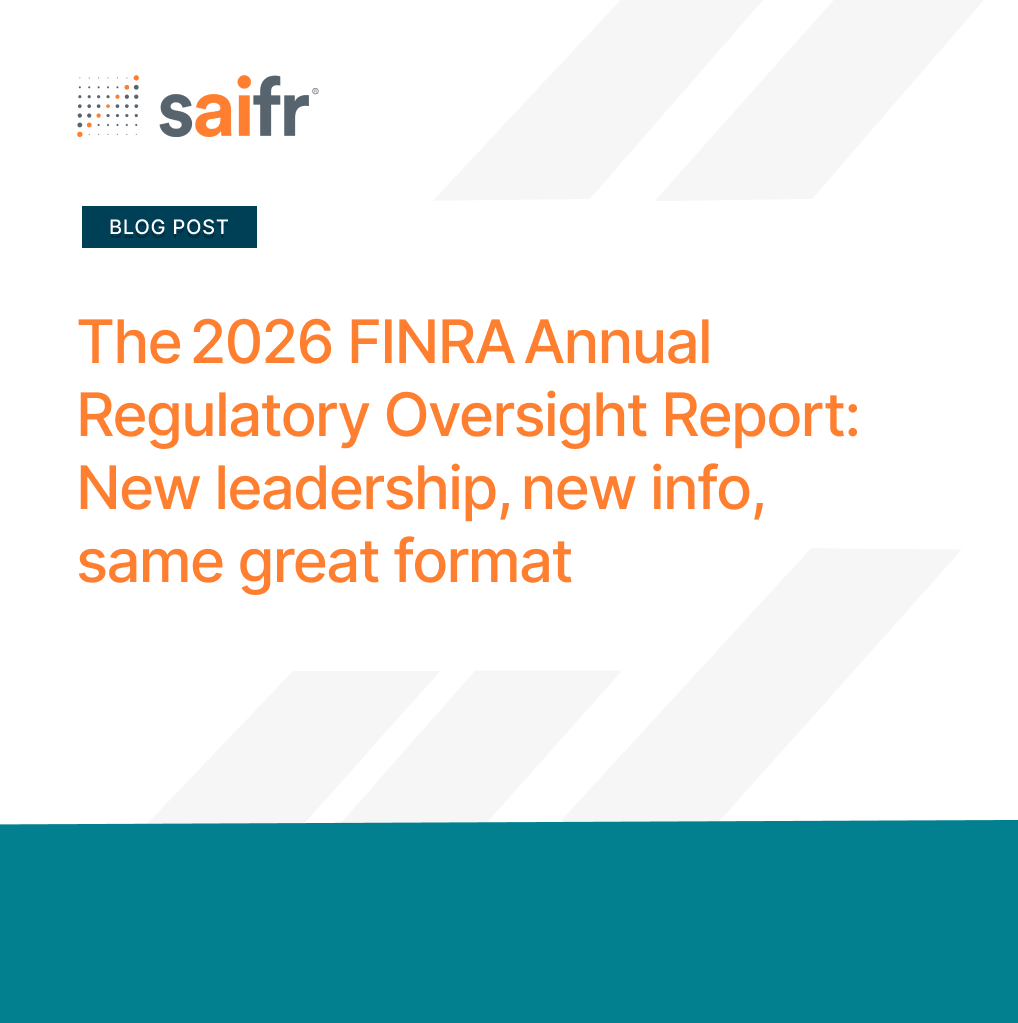I recently had the pleasure of attending and speaking on a panel at the RegTech Summit New York by A-Team Group. The event brought together industry thought leaders and practitioners to work toward solutions to our collective challenges. The day’s insightful conversations and ideas highlighted the industry’s approach to leveraging technology for regulatory compliance.
Technologies underpinned by AI are enabling a new wave of innovation, efficiency, and productivity for compliance functions across the financial services industry. As leaders look to develop and refine their strategies, here are three of the trends and nuances to be aware of.
1. Embracing AI for RegTech
The industry likely doesn't have a choice but to embrace AI. Generative AI and LLMs are already transforming compliance workflows. From ideation to operationalization, the potential for these technologies to streamline compliance processes is immense. If you think about it, compliance as a function is trying to find adverse inference—and that is essentially what AI does: it finds patterns. In that way, compliance teams are uniquely positioned to take advantage of AI.
AI may offer firms the ability to accelerate innovation, deliver solutions faster, and solve problems more efficiently, all while expanding access to insights and support to employees and clients. However, the journey isn't without obstacles—integrating AI tools into a business (especially one that’s regulated) requires a delicate balance. Challenges and risks such as data quality, interpretability, bias mitigation, and regulatory compliance must be addressed.
No matter if you use public LLMs or build your own, I believe that one solution for some of these risks is to add a “top” layer of finetuned AI that can act as a guardrail. This AI layer can help ensure that whatever is created can comply with regulations. I see this as the most accurate, strategic way forward.
Get the ebook → AI insights survey: Adopters, skeptics, and why it matters.
2. Navigating regulatory challenges
Though it may feel as though the regulatory landscape has been strained with rapid change and heightened scrutiny, I see some of these shifts as an opportunity for business growth. Rather than headache-inducing challenges, evolving regulations can be reframed as opportunities for:
- Refined strategy: Out with the old, in with the new, as the saying goes. Updated regulatory requirements offer organizations the chance to hone strategies and processes for more optimized performance.
- Better alignment across the firm: Aligning regulatory compliance with broader business objectives is not just a compliance necessity but a strategic move—it can streamline processes and promote cross-department coordination.
- An offensive approach to compliance: Rather than being on the defense, adopting a proactive stance that anticipates regulatory updates makes it easier to comply once new policies are put into place.
Embracing regulation as an opportunity can position organizations to thrive, turning compliance into a catalyst for broader organizational success.
The other thing to keep in mind is that regulators are equally impacted by the scale and pace of regulatory change. They are continually trying to understand how products are being developed and deployed in financial institutions. The likely basis of their guidance is aimed at understanding where tools’ data comes from and how they (particularly AI tools) make decisions. Plus, many regulatory bodies are trying to integrate AI into their own processes to optimize efficiency. We are all figuring it out at the same time—which means firms may have more influence in developing regulations, enabling them to adopt an offensive approach to compliance, as I mentioned above.
3. Placing trust and ethics at the center of RegTech
Another effect of the recent, heighted rate of regulatory change is an emphasis on governance, which includes data trust and ethical AI.
Building trust and confidence in data is paramount to all stakeholders: regulators, business leaders, tool users, and clients. Regulatory obligations often result in data-related stress—but the industry is responding by leveraging technology, automation, and connected governance to help ensure data is handled properly, which in turn promotes a sustainable approach to risk management. As regulations become more intricate, trust in data becomes the linchpin for navigating compliance challenges successfully.
The other half of the equation is ethical AI. One of the biggest factors in ethical AI—and mitigating the risks associated with using generative AI—is explainability. LLMs shouldn’t be black boxes; the decision-making chain needs to be clear so that the tool can be used responsibly. Ethical and social alignment, plus responsible use, is critical throughout the entire lifecycle of AI, from training and development to testing and use.
Though different regulators have taken different approaches to AI governance, the need for trust and ethics is clearly an imperative.
Collaboration continues to drive innovation in RegTech
What does the future of RegTech hold? I think industry-wide collaboration and cooperation in advancing and implementing transformative technologies—namely, AI—is the way forward. Together, we can better solve our collective pain points and efficiently navigate regulatory compliance. Embracing change should be our compass.
To learn how compliance professionals at U.S. financial institutions are thinking about and using AI, download our ebook, AI insights survey: Adopters, skeptics, and why it matters.
The opinions provided are those of the author and not necessarily those of Fidelity Investments or its affiliates. The information regarding AI tools provided herein is for informational purposes only and is not intended to constitute a recommendation, development, security assessment advice of any kind.
1119811.1.0






-1.png)